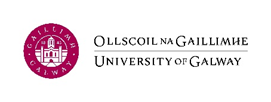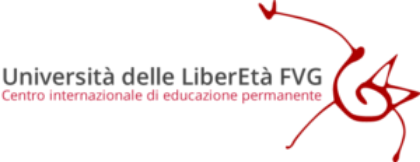
Education for healthy sexuality in older age
Project Number: 2021-1-FR01-KA220-ADU-

About The Project
The project Education for healthy sexuality in older age (EDUSEXAGE) is co-financed by the Erasmus+ programme. The project started in November 2021 and ends in January 2024. The project consortium consists of the NGOs, private companies, consulting, research centers and universities coming from France, Ireland, Slovenia, Germany, Italy and Spain. The EDUSEXAGE project aims to promote seniors’ (65+) socialization, self-esteem and active sexual life. It also intends to break the stereotypes about the seniors’ sexuality and provide up-to-date training resources for both seniors and seniors’ informal caregivers and educators.

About The Project
The project Education for healthy sexuality in older age (EDUSEXAGE) is co-financed by the Erasmus+ programme. The project started in November 2021 and ends in November 2023. The project consortium consists of the NGOs, private companies, consulting, research centers and universities coming from France, Ireland, Slovenia, Germany, Italy and Spain. The EDUSEXAGE project aims to promote seniors’ (65+) socialization, self-esteem and active sexual life. It also intends to break the stereotypes about the seniors’ sexuality and provide up-to-date training resources for both seniors and seniors’ informal caregivers and educators.

What We Do
The project will propose a specific training for seniors’ educators and informal caregivers, who may lack adapted and tested guidelines about how to discuss and tackle issues related to the social and intimate life at older age. The project will enable them to support seniors in increasing their self-confidence and positivity and have a fulfilled sexual life.
EDUSEXAGE project will also raise awareness of the general public about the importance of leading a fulfilled sexual, social, sentimental life, it will break the stereotypes of ageism and seniors’ sexuality. The project will improve understanding of the positive impact of active and healthy aging.

What We Do
The project will propose a specific training for seniors’ educators and informal caregivers, who may lack adapted and tested guidelines about how to discuss and tackle issues related to the social and intimate life at older age. The project will enable them to support seniors in increasing their self-confidence and positivity and have a fulfilled sexual life.
EDUSEXAGE project will also raise awareness of the general public about the importance of leading a fulfilled sexual, social, sentimental life, it will break the stereotypes of ageism and seniors’ sexuality. The project will improve understanding of the positive impact of active and healthy aging.

Users’ requirement report
The aim of this report is to support the partnership in the definition of the learning outcomes to be addressed by the courses to be developed as Project result 2 and 3. It will focus on the needs of the elderly population thanks to the implementation of an online questionnaire as well as focus groups.

Learning course to empower seniors
The objective of this result is to increase seniors’ socialization and active sexual life, by developing digital tools and proposing essential information about healthy ageing by means of boosting self-perception and understanding the power of the different types of interpersonal relations.

Training for educators, other professionals and informal caregivers
It will develop an online training aimed at different persons working with older adults. It will focus on how to monitor and exchange about seniors’ sexual life, the risk of loneliness, questions related to self-perception and interpersonal relations with older persons they are supporting and taking care of. This course will help seniors to understand and address sexual practices and social inclusion as a part of healthy ageing process.

Online platform
An interactive platform where the content of the PR2 and PR3 will be
gathered. It will also provide the elderlies with a space where they could exchange information about the specific topic of the project.

Users’ requirement report
The aim of this report is to support the partnership in the definition of the learning outcomes to be addressed by the courses to be developed as Project result 2 and 3. It will focus on the needs of the elderly population thanks to the implementation of an online questionnaire as well as focus groups.

Learning course to empower seniors
The objective of this result is to increase seniors’ socialization and active sexual life, by developing digital tools and proposing essential information about healthy ageing by means of boosting self-perception and understanding the power of the different types of interpersonal relations.

Training for educators, other professionals and informal caregivers
It will develop an online training aimed at different persons working with older adults. It will focus on how to monitor and exchange about seniors’ sexual life, the risk of loneliness, questions related to self-perception and interpersonal relations with older persons they are supporting and taking care of. This course will help seniors to understand and address sexual practices and social inclusion as a part of healthy ageing process.

Online platform
An interactive platform where the content of the PR2 and PR3 will be
gathered. It will also provide the elderlies with a space where they could exchange information about the specific topic of the project.

Who We Are
Seven different European structures are collaborating in this project

Who We Are
Seven different European structures are collaborating in this project

E-Seniors
E-Seniors is a Paris-based non-profit non-governmental organization that aims at fighting e-exclusion by offering ICT training to seniors (55+). E-Seniors follow its main goal by bridging the digital gap between generations, fostering seniors’ social participation, suggesting diverse activities to engage seniors in active social life. E-Seniors provides ICT courses for seniors in various public places and constantly opens new courses all over the Parisian region.

Friedrich-Alexander-Universität Erlangen-Nürnberg
The Institute of Psychogerontology of the Friedrich-Alexander-Universität Erlangen-Nürnberg has a long-standing history of more than 30 years in academic education as well as carrying out research projects. The IPG is strongly devoted to the topic of lifespan psychology with a focus on clinical and non-clinical aspects of ageing. The main research interests include health, ageing care, cognitive development, dementia, social relationships, personality, views on ageing, cross-cultural differences in ageing, and psychological determinants of everyday use of technical devices. In its educational and research work the IPG combines medical, psychological, social and socio-political perspectives on ageing and life in old age.
Institute of Psychogerontology:
Friedrich-Alexander-Universität Erlangen-Nürnberg:

National University of Ireland Galway (NUIG)
National University of Ireland Galway (NUIG) is a research-led university in the West of Ireland and a leading educational provider since the 1850s. NUI Galway’s current student population exceeds 18,000 and NUI Galway received the Sunday Times accolade of University of the Year 2022. The Health Promotion Research Centre (HPRC) at the National University of Ireland Galway was established in 1990 with support from the Irish Department of Health. The Centre produces high quality research, of national and international significance, that supports the development of best practice and policy in the promotion of health and well-being.

E-Seniors
E-Seniors is a Paris-based non-profit non-governmental organization that aims at fighting e-exclusion by offering ICT training to seniors (55+). E-Seniors follow its main goal by bridging the digital gap between generations, fostering seniors’ social participation, suggesting diverse activities to engage seniors in active social life. E-Seniors provides ICT courses for seniors in various public places and constantly opens new courses all over the Parisian region.

Friedrich-Alexander-Universität Erlangen-Nürnberg
The Institute of Psychogerontology of the Friedrich-Alexander-Universität Erlangen-Nürnberg has a long-standing history of more than 30 years in academic education as well as carrying out research projects. The IPG is strongly devoted to the topic of lifespan psychology with a focus on clinical and non-clinical aspects of ageing. The main research interests include health, ageing care, cognitive development, dementia, social relationships, personality, views on ageing, cross-cultural differences in ageing, and psychological determinants of everyday use of technical devices. In its educational and research work the IPG combines medical, psychological, social and socio-political perspectives on ageing and life in old age.
Institute of Psychogerontology:
Friedrich-Alexander-Universität Erlangen-Nürnberg:

University Of Galway
National University of Ireland Galway (NUIG) is a research-led university in the West of Ireland and a leading educational provider since the 1850s. NUI Galway’s current student population exceeds 18,000 and NUI Galway received the Sunday Times accolade of University of the Year 2022. The Health Promotion Research Centre (HPRC) at the National University of Ireland Galway was established in 1990 with support from the Irish Department of Health. The Centre produces high quality research, of national and international significance, that supports the development of best practice and policy in the promotion of health and well-being.

The Rural Hub
The Rural Hub is an Irish association founded in 2012 that provides specific training programmes in order to support and aid members of disadvantaged communities. The Rural Hub focuses on encouraging social inclusion and offering solutions that promote the integration of migrant communities and marginalised learners into mainstream education offers. Alongside this, they specialise in education, e-learning, media production, development, research, and community development. The Rural Hub aims to support greater community involvement and enhanced social inclusion by focusing on growing isolated communities. The Rural Hub runs a Digital Media Zone (DMZ) in Virginia, Ireland, where they deliver bespoke digital media production training to youth, migrant and community groups. By working on national and EU funded projects, this association has supported local youth groups, migrant communities, senior adults, and individuals who have been absent from education to re-engage with service providers and mainstream education. The Rural Hub delivers a range of diverse programmes to support the next generation of creative individuals to build and sustain successful careers.

Università delle libertEtà
Università delle LiberEtà is a lifelong learning center involved in adult education and training. It is based in Udine, in the North-East of Italy. It was established in 1993 and since then it has welcomed more than 39000 members! It offers more than 500 courses per year in many different fields (from ICT to foreign languages, to physical wellbeing to handicrafts laboratories, and many more!) involving more than 100 teachers, acting as an important cultural resource for the community, stimulating learners to be active citizens.

Faculty of Health and Social Sciences Slovenj Gradec
The Faculty of Health and Social Sciences Slovenj Gradec is an independent higher education institution in the Carinthian – Koroška region in Slovenia. It currently offers 1 st cycle bachelor study programmes (Nursing and Physiotherapy) as well as 2 nd cycle master study programmes (Nursing, Physiotherapy, Public health, Urgent health conditions, Care for the elderly, Long-term care, and Mental health care). Besides providing higher education for students, the faculty is performing professional, developmental, and counselling work, as well as important research work in the field of health and social sciences.

Instalofi Levante S.L FYG
Instalofi Levante S.L. – FyG Consultores (FYG) is a private educational and training organization, that promotes the local labour market as well as a lifelong learning process of adults, companies and young people. FYG works actively on career development services to refer to a wide range of programs and services whose main purpose is to help individuals to gain the knowledge, skills and attitudes to develop life skills and to manage their learning, work and careers.

Funded by the European Union. Views and opinions expressed are however those of the author(s) only and do not necessarily reflect those of the European Union or the European Education and Culture Executive Agency (EACEA). Neither the European Union nor EACEA can be held responsible for them.

